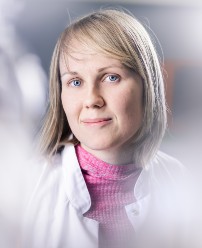NCMM receives 20 million NOK to research personalized gene editing
NCMM group leader Dr. Emma Haapaniemi, Professor Eivind Valen and collaborators will advance gene therapy for primary immunodeficiencies

Note: this article originally appeared on the NCMM website.
Primary immunodeficiencies (PIDDs) are rare diseases where an inherited genetic mutation causes white blood cells to malfunction. Over 6 million people are estimated to be affected by PIDDs worldwide. Since white blood cells help the body to fight disease and infection, people with PIDDs are susceptible to diseases such as viral infections, autoimmune disease, allergies and cancer.
Gene editing can correct faulty white blood cells
There are different types of PIDDs – some can be treated with a bone marrow transplant, whilst others can be treated with immunoglobulin therapy (a mix of antibodies made from human blood plasma) or by targeted therapies originally developed for autoimmune diseases and cancer. However, these treatment options are insufficient in some patients such as those at an advanced stage of the disease, or those who have a viral infection. In several PIDDs it is a type of white blood cells, called T cells, which are the cause of the disease because they are faulty. Thus, there is a need to develop a treatment for patients who are unresponsive to conventional treatment by correcting their T cells.
This new project proposes to use a gene editing tool called CRISPR to correct T cells from patients with diverse T cell immunodeficiencies. After the researchers correct the T cells, they will be infused back into the patient’s body. The correction of the T cells will enable the patients to have an immune system that protects their body from disease and infection properly. The T cell CRISPR editing has been used to engineer cells for cancer treatment, and is generally effective and safe.
An alternative option for treating PIDDs by gene editing is to correct the patient’s blood stem cells. While stem cell editing has the potential to cure the disease, it is technically more challenging than T cell editing. The cells also need to survive throughout the patient’s lifetime and the risk that they become cancerous is larger.
The project combines advanced computer science and medicine
Gene editing is a fine balance – the CRISPR-CAS9 tool needs to edit in the right place without affecting healthy genes. The challenge with primary immunodeficiencies are their rarity and diversity.
—There are many different mutations. Individually they are rare, but collectively they become quite common. That’s why we want to develop one platform that can treat a large spectrum of mutations, explained Dr Haapaniemi.
To overcome this challenge, the team will first look for mutations at Oslo University Hospital and in the published literature. They will then find guides which will lead the T cell correction tool to the right place to correct those mutations. The groups will use advanced screening methods to find appropriate guides for the individual patients.
Later, the researchers will use the results to make a computer program called ChopChop better at prioritizing guides for individual patients. The program is currently used to predict guides for CRISPR editing, but the guide prediction accuracy is currently insufficient for clinical use.
The 20 million NOK grant from the Research Council of Norway represents an important step in bringing life-changing gene therapies to patients and understanding more about these mutations.
—It is promising to see Norwegian professional environments with very high ambitions. We as a society are undergoing a massive transformation and we will not succeed without radical innovations and technology. It will be exciting to follow the projects, says CEO of the Research Council Norway, Mari Sundli Tveit.
Contact
Project group
- Dr Emma Haapaniemi (NCMM)
- Professor Eivind Valen (UiB, Sars centre and NCMM)
- Professor Johanna Olweus (Institute for Cancer Research, Oslo University Hospital)
- Dr Hans Christian Erichsen (Oslo University Hospital)
- Dr Jochen Buchner (Oslo University Hospital)